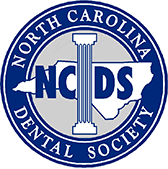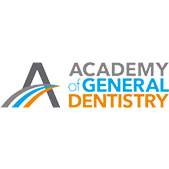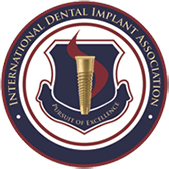
If you are like many dental patients, you probably know that you need to floss your teeth. But do you know that you need to do it daily to promote overall health?
Most dental providers ask their patients to make a habit of flossing at least once daily. The time of day you floss is not as significant as taking a few minutes to thoroughly clean between your teeth.
The American Dental Association also recommends not using fingernails, hair, paper or other objects to remove debris between teeth. Instead, it is recommended to choose a flossing product with the ADA Seal of Acceptance.
The dentists of Modern Family Dental Care can assist with proper techniques for flossing. For traditional dental floss, break off a piece that measures about 18 inches long. Wind the ends of the floss around each one of your middle fingers until the floss is secured in place.
Use your thumb and forefinger to guide the floss into your mouth and rub gently between each of your teeth. Move the floss up and down against each tooth once you reach the gum line. When finished with the task, rinse out your mouth and discard the used piece of floss.
The Benefits of Flossing Daily
Eliminate Cavities
When you brush on a regular basis, you are actively trying to remove plaque to prevent cavities. Plaque is formed when the bacteria that naturally exists inside your mouth meets food byproducts and proteins.
Plaque can stick to the teeth and can also get under the gum line. Plaque will damage the enamel of the teeth and eventually contribute to tooth decay.
Brushing combined with flossing will get rid of the plaque before it causes any permanent damage to the teeth that requires dental work. Flossing will strengthen your teeth and stop you from needing a filling each time you go in for a regular dental checkup.
Effective Ways to Stop Gum Disease and Improve Your Oral Health
Periodontal disease, also referred to as gum disease, starts off mild before eventually worsening and causing more serious dental issues. In the earliest stages of gum disease, the condition is called gingivitis.
Gingivitis symptoms include red and swollen gums that tend to bleed easily. Gingivitis is caused by plaque buildup at the gum line.
As plaque spreads below the gum line and periodontal disease advances, tissue and bone that hold the teeth in place start to breakdown. Spaces start to form between the teeth and gums with the pockets become prone to infection. Teeth can start to loosen and may eventually need to be removed.
The good news is gum disease is not only preventable but can be reversed. If a dental patient starts to brush and floss daily, gum disease can be stopped in its tracks. Patients notice quickly once they start a routine of flossing, their gums have a less irritated appearance with fewer incidences of bleeding.
Prevent Tooth Loss
The idea of losing teeth doesn’t appeal to any of us. However,when you’re not flossing on a regular basis,plaque is able to build up along the gum line in places a toothbrush can’t reach. The plaque can start to destroy teeth at the root and eventually attribute to tooth loss.
Tooth loss is a widespread problem with studies from theNational Institute of Dental and Craniofacial Research reporting that adults between the ages of 20 and 64 have lost an average of 7 teeth. Further, approximately 26 percent of adults over the age of 65 up to 75 have lost all their teeth.
Less Tartar Buildup
When patients don’t remove plaque from their teeth, the substance will eventually harden and turn into tartar. Tartar is a hard and porous material and can form both on the gum line and beneath the surface of it. Tartar can’t be removed once it forms on the teeth through brushing or flossing. It requires dental cleaning and a special tool for removal used only by dental hygienists.
A Brighter, Whiter Smile
When you are flossing, you are doing much more than just getting rid of unsightly food from between your teeth. Flossing will also remove plaque that could cause discoloration on your teeth.
Better Overall Health
Several scientific studies have found a link between flossing and the prevention of serious medical conditions. Research has shown that heart disease is more prevalent in those with poor oral health.
According to theHarvard Medical School, researchers believe that the bacteria infecting the gums could cause blood vessel damage in other areas of the body. Another theory about the connection is that the bacteria from gum disease are causing an immune system response that is damaging other areas of the body like the heart.
No matter what the underlying cause, flossing and brushing will only reduce your risk for certain health conditions. The bottom line is flossing must be prioritized by you and all members of your family, but you need to learn how to properly floss your teeth.
Along with brushing and flossing, regular dental checkupswill help promote good oral health. The professional and compassionate team at Modern Family Dental Care can assist with addressing all your family’s dental care needs.
Contact us today to set up your next appointment at one of our North Carolina locations.





